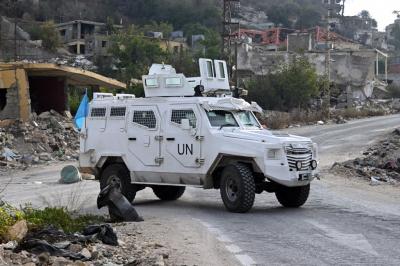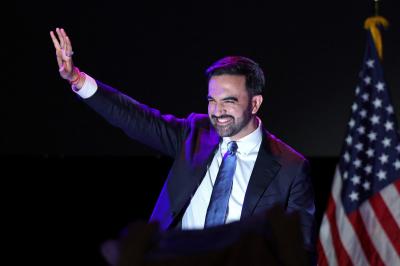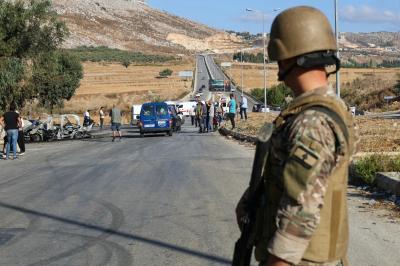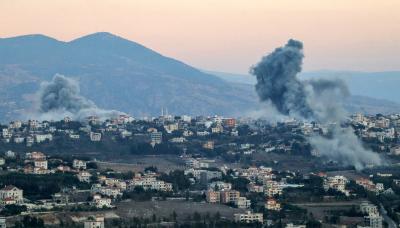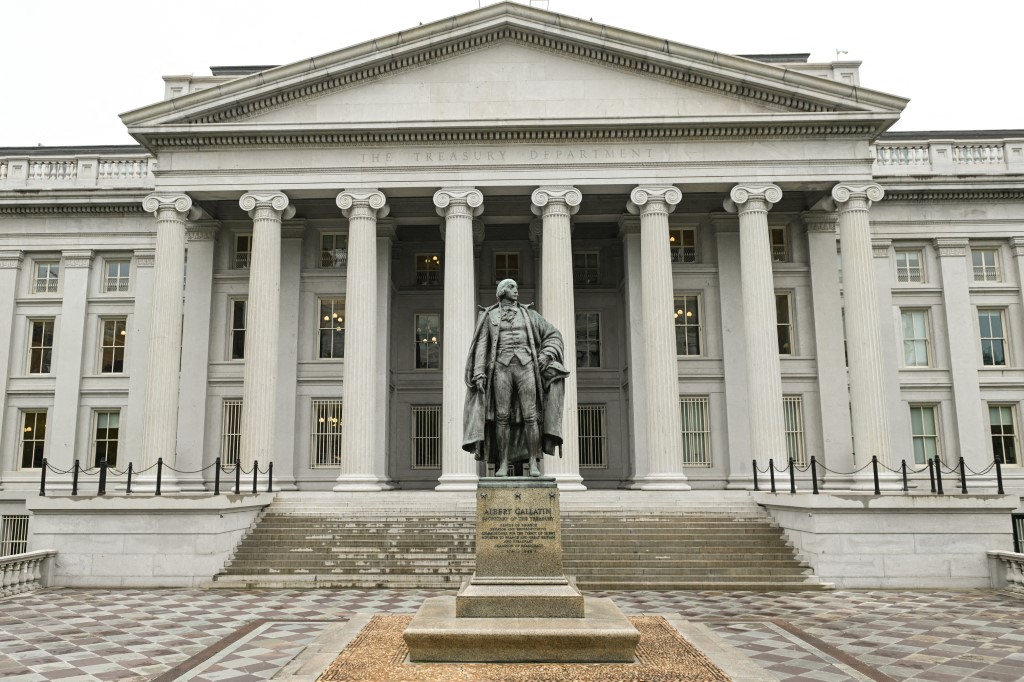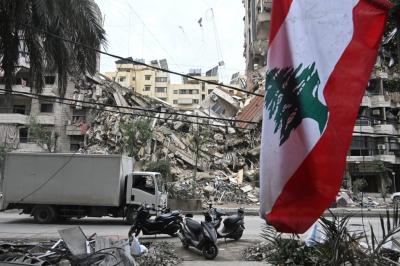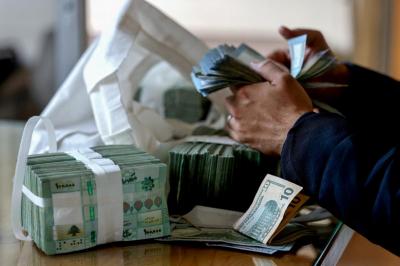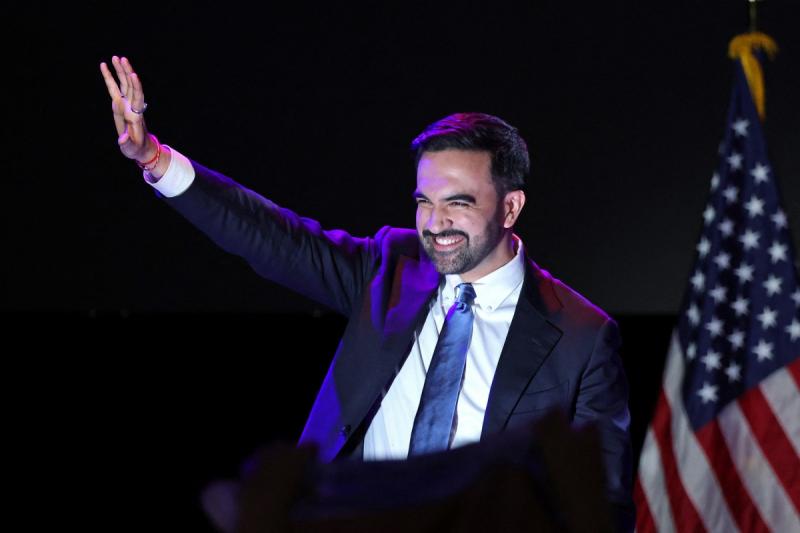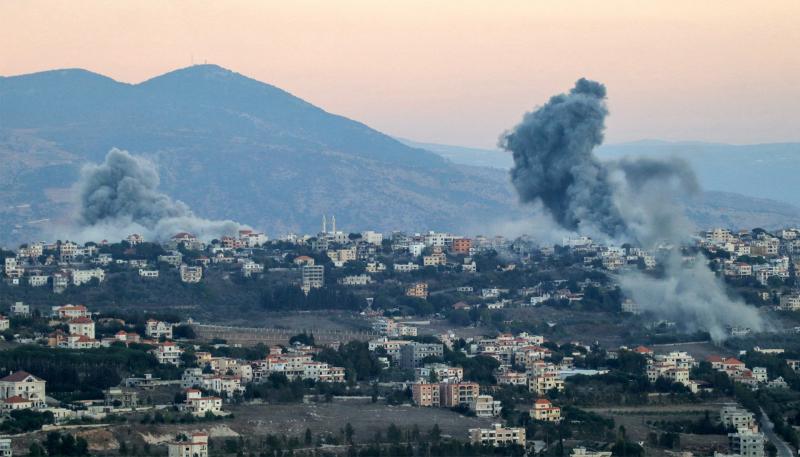“There’s no need to panic.” This familiar phrase often resurfaces whenever Lebanese officials respond to a major event — whether it is an infectious outbreak, a natural disaster, or a new wave of U.S. Treasury sanctions targeting the Lebanese government and its people. Their calm demeanor may be admirable in public, but what truly matters is whether they are working behind the scenes to address the crises they dismiss so casually. Are they?
A delegation from the U.S. Department of the Treasury landed in Beirut last Sunday, holding a series of meetings with Lebanese officials to review progress in combating money laundering and terrorism financing, and to discuss the measures Lebanon intends to adopt in the coming phase. That was the official version from Beirut. But before arriving, the delegation’s head, John Hurley, Under Secretary of the Treasury for Terrorism and Financial Intelligence, made a much clearer statement: “Money is still reaching Hezbollah — in cash and gold, carried in suitcases.” He added that, given the scale of the funds involved, “we are confident there are banks somewhere facilitating the entry of these funds into Lebanon, whether knowingly or unknowingly.” Hurley also noted that currency exchange offices remain “a major part of the problem,” pointing out that the U.S. Treasury had recently imposed new sanctions targeting financial agents transferring money to Hezbollah through such offices.
The Measures Taken
Based on statements by Lebanese officials, Beirut’s response to the American inquiries likely included the following points:
- Circular No. 170 issued by the Central Bank of Lebanon requires precautionary measures to shield the financial and economic sectors from dealing with unlicensed entities or those sanctioned by foreign authorities.
- Circular No. 1355 from the Ministry of Justice, instructing public notaries to verify and explicitly declare the source of funds in any contract or transaction, whether the amount is in cash or by bank check. It also obliges them to ensure that all parties are not listed on international sanctions lists, and to refrain from any transaction if the beneficial owner cannot be identified.
- The Central Bank’s partnership with K2 Integrity, an international firm tasked with helping track suspicious financial flows and combat the cash-based economy.
- Enhanced cooperation between judicial, security, and monetary authorities to implement Financial Action Task Force (FATF) standards for combating money laundering and terrorism financing.
Hurley described these efforts as “significant progress” by Lebanese authorities. Yet despite the praise, Washington insists that Lebanon must do more. U.S. officials believe Hezbollah is attempting to move roughly one billion dollars into the country before year’s end — though they admit the exact amount already smuggled in remains unknown.
The “National Coordinator” Problem
At the heart of the issue lies the Special Investigation Commission (SIC) — Lebanon’s national anti–money laundering and counterterrorism financing body — which treats the matter as a checklist exercise rather than a serious enforcement mechanism. Instead of moving from theory to action, the SIC appears content to tick boxes to satisfy international observers. Contrary to what many — including the U.S. Treasury — may think, Lebanon’s money laundering problem is not limited to funds destined for Hezbollah. The issue is systemic, rooted in the very structure of the Lebanese economy and its weak compliance with FATF requirements, which once landed Lebanon on the gray list.
Missing Enforcement and Transparency
To assess a country’s effectiveness in combating financial crimes, the FATF evaluates eleven core criteria measuring actual enforcement. According to experts, Lebanese authorities continue to ignore most of the required action plan, failing to provide solid data or case statistics. “What’s needed,” explains Mohammad Al-Mughbatt, founder and director of the SKY Center for Research and Consulting, “is a clear count of investigative files opened by the Financial Prosecutor’s Office, the Internal Security Forces’ financial crimes unit, and the Special Investigation Commission, specifically in cases of money laundering and terrorism financing.”
Al-Mughbatt adds that authorities must also disclose “the number of asset-freezing orders issued, as well as the number of court convictions for money laundering.” While few convictions are expected during the first year of implementation, he notes, “the minimum requirement is to show the number of ongoing investigations and reports actually filed.” Cross-checked data indicates that the number of active cases, convictions, and confiscations remains near zero, with no meaningful asset seizures to date — a finding that raises serious doubts about the effectiveness of Lebanon’s compliance system.
The Broader Dimensions of Money Laundering
The issue goes far beyond the funds reaching armed groups. It stems from deep flaws in Lebanon’s financial oversight and accountability mechanisms. Ten years after the passage of Law 44/2015 on anti–money laundering and counterterrorism financing, SKY Center data show that notaries, lawyers, and certified accountants still demonstrate very low compliance levels with the obligations outlined in Article 5 of the law.
In a country that has remained on the gray list for years and has become a cash-based economy since 2019 — rife with corruption, waste, and tax evasion, the original crimes underpinning money laundering — the SKY Center recorded a shockingly low number of suspicious transaction reports between 2016 and 2023: only seven from notaries, one from lawyers, and four from accountants. Many of these professionals cite professional secrecy to justify not reporting suspicious activities. “But this excuse,” Al-Mughbatt warns, “does not exempt them from cooperating with judicial and regulatory authorities. Professional secrecy cannot be a shield against the law.”
Amid these violations, Lebanese courts have recorded only one conviction for money laundering — issued at the request of Australian authorities, following an international investigation that uncovered the cash purchase of three luxury sports cars. It was only under Australian pressure that the case moved forward. Without such foreign intervention, the verdict would never have been issued.
A Culture of Laundering
The funds reaching Hezbollah represent a large part of the problem, but the real issue is that money laundering has become normalized in Lebanon. As long as investigations remain absent, asset freezes are rare, court convictions scarce, and confiscations nonexistent, Lebanon’s removal from the FATF gray list will remain almost impossible. Continued international condemnation — from the U.S. Treasury, the European Union, and other global institutions — will persist, bringing with it escalating financial and banking sanctions targeting the state, individuals, and institutions alike.
The Risks Ahead
MP Mark Daou warns that Lebanon’s failure to comply with anti–money laundering and terrorism financing standards poses serious risks, potentially exposing individuals and businesses to international sanctions — effectively excluding them from the global financial system. He reminds us that these scenarios are not theoretical: they have already happened, as seen with the Lebanese Canadian Bank and Jammal Trust Bank, both expelled from the international system after being blacklisted by the U.S. Treasury.
This warning comes amid growing international concern over suspicious funds circulating in Lebanon, possibly linked to entities under sanctions. Should such money enter Lebanon’s legitimate banking system and then pass through correspondent banks like Bank of America, Citibank, or J.P. Morgan, it would trigger immediate alarms among compliance officers at those institutions. Even a single suspicious transaction originating from Lebanon could prompt a correspondent bank to cut ties entirely with Lebanese financial institutions.
A Call for Real Action
Ultimately, fighting money laundering requires tangible, enforceable measures, not theoretical policies or empty promises. International bodies are well aware of this, which is why excuses, ambiguity, or bureaucratic delay will no longer suffice. Lebanon’s credibility and its place within the global financial system now hang in the balance.
Please post your comments on:
[email protected]
 Politics
Politics
